




(click pics to view detail)
Zechao Li, Professor at the School of Computer Science and Engineering, Nanjing University of Science and Technology, National Distinguished Young Scholar.
Xi Li, Professor at the College of Computer Science, Zhejiang University, National Distinguished Young Scholar.
Xi Li, Professor at the College of Computer Science, Zhejiang University, National Distinguished Young Scholar.
Xi Li, Professor at the College of Computer Science, Zhejiang University, National Distinguished Young Scholar.
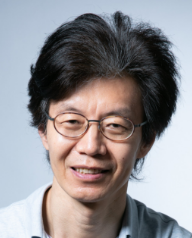
From a deterministic 3D reconstruction to a probabilistic 3D generation of computer vision: does it lead to a unified spatial intelligence?
I will first review the development of computer vision in reconstruction, understanding and recognition, and generation in the past. Then I will overview the state of the art of the generative approaches in discrete languages, and continuous images and videos, then focus more on discussing the very mathematical nature of language and visual data representation, therefore on the nature of 3D generative representations in different spaces, and on the search of unified representation space in computable architectures for generative world modeling.
From a deterministic 3D reconstruction to a probabilistic 3D generation of computer vision: does it lead to a unified spatial intelligence?
Long QUAN is a Professor of the Department of Computer Science and Engineering at the Hong Kong University of Science and Technology. Long Quan received the Ph.D. in Computer Science at INRIA (France) in 1989. Before joining the Department of Computer Science at the Hong Kong University of Science and Technology (HKUST) in 2001 to found the HKUST computer vision group, he has been one of the founding members of INRIA Grenoble Computer Vision Group since 1990.
He directed the founding best French PhD thesis in computer science, le prix de these Gilles Kahn in 1998, the Piero Zamperoni Best Student Paper Award in 2000, the first of six highlights of Siggraph 2007, the Best Student Poster Paper of CVPR 2008, and the ICPR 2020 Best Student Paper Award.
He has served as a General Chair of the ICCV 2011 in Barcelona, and a General Chair of the IEEE CVPR 2022 in New Orleans. He has also served as a Program Chair of ICPR 2006 Computer Vision and Image Analysis, a Program Chair of ICPR 2012 Computer and Robot Vision. He is an IEEE Fellow of the Computer Society.
He has founded the HKUST start-up Altizure.com, which has been was acquired by Apple. He has also served as a Distinguished Scientific Advisor of Apple.
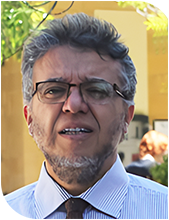
Professor Mohammed Bennamoun is a globally recognized authority in the fields of Computer Vision and Artificial Intelligence. He is currently a Professor at The University of Western Australia (UWA). He received his M.Sc. in Control Theory from Queen’s University in Kingston, Canada, and was awarded a PhD in Computer Vision through a joint program between Queen’s University and the Queensland University of Technology (QUT), Australia. In 1993, he joined QUT as an Associate Lecturer, was promoted to Lecturer in 1996 and to Senior Lecturer in 1998. From 1998 to 2002, he also served as the Director of a research centre.
In 2003, he joined the School of Computer Science and Software Engineering at UWA as an Associate Professor and was promoted to Full Professor in 2007. From February 2007 to March 2012, he served as the Head of the School.Professor Bennamoun has long been dedicated to cutting-edge research in 3D computer vision, deep learning, robotic grasping and obstacle avoidance, signal/image processing, and control theory. His team has made significant contributions in 3D digital modeling and pattern recognition, earning wide international recognition.
He has published extensively, with over 240 journal articles and more than 300 conference papers, and is the author of four authoritative books. He currently serves as a Senior Area Editor for the IEEE Signal Processing Letters, and as an Associate Editor for both the IEEE Transactions on Image Processing and the IEEE Transactions on Artificial Intelligence. He has also served as a Guest Editor for several special issues in leading journals, such as IEEE Transactions on Pattern Analysis and Machine Intelligence (TPAMI) and the International Journal of Pattern Recognition and Artificial Intelligence (IJPRAI).Professor Bennamoun has delivered tutorials at major international conferences such as ECCV, CVPR, and ICASSP, and served on the program committees of numerous conferences, including ICCV and 3DIM. He has organized several special sessions, such as for IEEE ICIP, and has contributed to the organization of both local and international conferences. He is frequently invited to deliver keynote speeches at major international events.In recognition of his outstanding academic leadership and mentorship, he was awarded the UWA Vice-Chancellor’s Research Mentorship Award in 2016—the only recipient in that category university-wide for that year. He also received the UWA Award for Teaching Excellence in Research Supervision in 2016, where he was praised for his “outstanding contributions and for going above and beyond to inspire, support, and educate.” Earlier in his career, he was named “Best Supervisor of the Year” at QUT and received a research supervision award at UWA in 2008.
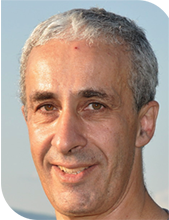
Deep Shape Design
We live in a world full of manufactured objects of ever-increasing complexity that require clever engineering to be functional. Today, individual parts that composite objects are made of are optimized separately, control is not fully accounted for at design time, and much manual tinkering is required. As a result, our machines are not as efficient as they could be.
We aim to change this by developing end-to-end trainable pipelines that incorporate all these elements. In this talk I will present the approach to composite design and co-design for shape and control we are currently developing.
Professor Pascal Fua is an internationally renowned expert in computer vision and artificial intelligence. He is currently a professor in the School of Computer and Communication Sciences at the École Polytechnique Fédérale de Lausanne (EPFL), where he leads the Computer Vision Laboratory (CVLab). He received an engineering degree from École Polytechnique, Paris, in 1984, and a Ph.D. in Computer Science from the University of Orsay (now part of Université Paris-Saclay) in 1989. Before joining EPFL in 1996, Professor Fua worked as a computer scientist at SRI International (USA) and at INRIA Sophia-Antipolis (France).In 2012, he was named an IEEE Fellow for his contributions to the theory and practice of three-dimensional shape recovery from images and video sequences. Professor Fua’s research focuses on 3D shape modeling, motion recovery from images and video, analysis of microscopy images, and augmented reality. He is dedicated to developing innovative methods for recovering 3D information from images and videos. He has made significant contributions to 3D reconstruction, human pose estimation, image keypoint detection and matching, and multi-object tracking.
Professor Fua has published over 800 academic papers, and his work has been cited more than 83,000 times globally, with an h-index of 125, demonstrating his profound impact in the field of computer vision. He has also made outstanding contributions to academic service, having served as Associate Editor for IEEE Transactions on Pattern Analysis and Machine Intelligence (TPAMI), and frequently acting as a program committee member, area chair, or general chair for major international conferences such as CVPR, ECCV, and ICCV.In terms of research funding, Professor Fua has received several prestigious grants from the European Research Council (ERC), including an Advanced Grant in 2009 and two Proof of Concept Grants in 2013 and 2018, supporting his work in frontier areas such as 3D vision reconstruction and human-computer interaction. He received the Best Paper Award at CVPR (2005) with J. Pilet and V. Lepetit, the ECCV Koenderink Prize for Fundamental Contributions in Computer Vision (2020) with M. Calonder, V. Lepetit, and C. Strecha, and the Best Paper Award at AIAA in Multidisciplinary Design Optimization (MDO) (2024) with Z. Wei, A. Yang, M. Bauerheim, and R. Liem.In addition, Professor Fua is a founder of several technology companies, including Pix4D, which focuses on 2D and 3D environment reconstruction; PlayfulVision, a sports data analytics company acquired by Genius Sports; and Neural Concept, which specializes in engineering design optimization. These companies apply his research to a wide range of applications, including drone image modeling, sports video analytics, and industrial design.With his outstanding contributions to the fields of computer vision and artificial intelligence, Professor Fua enjoys a distinguished reputation in the international academic community and is a leading figure in advancing the state of the art.

Professor Abdulmotaleb El Saddik is an internationally renowned expert in artificial intelligence, digital twins, immersive multimedia systems, and the metaverse. He currently serves as a Distinguished University Professor and University Research Chair Professor in the School of Electrical Engineering and Computer Science at the University of Ottawa, Canada, and concurrently as the Acting Chair of the Computer Vision Department at the Mohamed bin Zayed University of Artificial Intelligence (MBZUAI) in the UAE. Professor El Saddik founded and has been the director of the Multimedia Communications Research Laboratory (MCRLab) at the University of Ottawa since 2002, and was designated a Distinguished Professor in 2014. His research has consistently focused on integrating AI with emerging technologies to advance intelligent and immersive human-computer interaction, covering cutting-edge areas such as AI and digital twins, computer vision and virtual/augmented reality, and multimodal interaction in metaverse environments, positioning him as a global academic leader in these fields. For his outstanding contributions to interactive haptic audio-visual systems, he was elected an IEEE Fellow in 2009. He was subsequently elected a Fellow of the Canadian Academy of Engineering in 2010, a Fellow of the Royal Society of Canada in 2020, and a Fellow of the Engineering Institute of Canada in 2010. In the same year, he was also named an ACM Distinguished Scientist.
Professor El Saddik's academic output is remarkably prolific, with over 600 peer-reviewed papers and 10 academic books to his credit. According to Google Scholar, his research has garnered over 27,000 citations, with an h-index of 84, demonstrating a broad and profound impact across multimedia, artificial intelligence, and human-computer interaction research domains. In his commitment to academic service, he holds pivotal editorial roles for several authoritative international journals, including Editor-in-Chief of ACM Transactions on Multimedia (ACM TOMM), and Associate Editor for IEEE Transactions on Multimedia (IEEE TMM) and Multimedia Tools and Applications (MTAP). He has also been instrumental in organizing international academic conferences, having served as General Chair or Technical Program Chair for over 50 international conferences, including ACM Multimedia 2008. These efforts have significantly fostered global collaboration and exchange in multimedia and intelligent interaction technologies. As a scholar with exceptional contributions at the intersection of AI and multimedia, Professor El Saddik continuously drives technological innovation and academic advancement, enjoying a stellar reputation within the international academic community as an unparalleled leader in his field.
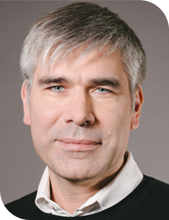
Professor Ivan Laptev is an internationally recognized authority in computer vision and artificial intelligence. He currently serves as a Professor in the Computer Vision Department at Mohamed bin Zayed University of Artificial Intelligence (MBZUAI) in Abu Dhabi. Concurrently, he is a Research Director at the Paris research center of the French National Institute for Research in Digital Science and Technology (INRIA), where he led the WILLOW team from 2021 to 2023. Professor Laptev is also a co-founder and the Head of Research at VisionLabs, a computer vision startup.His academic career includes a postdoctoral fellowship with the Vista team at INRIA in 2004, after which he became an INRIA Research Scientist in 2005 and was promoted to Research Director in 2013. Professor Laptev's research focuses on human action recognition, joint modeling of vision and language, robotic manipulation and navigation, video question answering, video captioning, and 3D reconstruction of the human body and hands. His work is dedicated to advancing the perception and understanding of dynamic scenes in intelligent systems.
Professor Laptev has an outstanding publication record, with over 150 high-impact papers published in premier computer vision and artificial intelligence journals and conferences, including CVPR, ICCV, ECCV, NeurIPS, and IJCV. As of October 2024, his work has garnered over 49,800 citations, with an H-index of 77, placing him in the top 3% of computer scientists globally. His research has received significant academic attention and has been highly influential, particularly in the areas of video recognition and local feature extraction for action analysis.He has served as a Principal Investigator for numerous major EU research projects and has a long history of leadership in the academic community, including serving as an Area Chair for top international conferences such as CVPR, ICCV, ECCV, and ACCV. Furthermore, Professor Laptev has been an Associate Editor for the International Journal of Computer Vision (IJCV) and the IEEE Transactions on Pattern Analysis and Machine Intelligence (TPAMI), has acted as a Program Chair for CVPR and ICCV, and has been an invited speaker for tutorials and workshops at many international conferences.
Committed to education and outreach, Professor Laptev co-organized the INRIA Summer School on Computer Vision and Machine Learning (2010–2013) and the "Machines Can See" summit (2017–2023), fostering global exchange and collaboration in computer vision research. In recognition of his exceptional contributions to research and talent development, he has received numerous international academic honors, including Google Research Awards, the INRIA Award for Research Excellence, and the Helmholtz Prize. In 2012, he was awarded a Starting Grant from the European Research Council (ERC). Professor Laptev is highly regarded in the global computer vision community for his dedication to building an international and interdisciplinary research ecosystem.
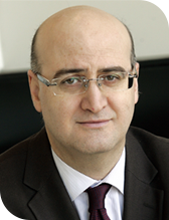
Does Deep Learning Have to be so Deep? Exploring Alternative Neuron Models
Deep Learning is great as it has outperformed many traditional approaches in numerous fields. However, DL comes at a price of high computational cost and follows mostly a Blackbox approach. Striving towards Green Learning, we will propose and discuss Operational Neural Networks (ONNs) as more efficient alternatives to conventional Convolutional Neural Networks (CNNs). ONNs can perform any linear or non-linear transformation with a proper combination of nodal and pool operators. This is a great leap towards expanding the neuron’s learning capacity in CNNs, which thus far required the use of a single nodal operator for all synaptic connections for each neuron. This restriction has recently been lifted by introducing a superior neuron called the “generative neuron” where each nodal operator can be customized during the training to maximize learning. As a result, the network can self-organize the nodal operators of its neurons’ connections. Self-Organized ONNs (Self-ONNs) equipped with superior generative neurons can achieve diversity even with a compact configuration. We shall extend the generative neuron model to super neuron model and explore several pattern recognition and computer vision applications of neural network models equipped with these new neuron models.
Professor MoncefGabbouj, an internationally renowned expert in the fields of signal processing, artificial intelligence, and multimedia computing, currently serves as professor of Information Technology at the Department of Computing Sciences, Tampere University, Tampere, Finland, where he leads the Signal Analysis and Machine Intelligence (SAMI) research group.In recognition of his outstanding contributions to the field of nonlinear signal processing and video communication, he was elected an IEEE Fellow in 2011. In 2014, he was elected a member of the Academia Europaea and the Finnish Academy of Science and Letters.
Professor Gabbouj began his tenure at Tampere University of Technology (now Tampere University) in 1990 and was promoted to Full Professor in 1998, in Tampere, Finland. He served as Head of the Department of Signal Processing from 2002 to 2007 and held the distinguished position of Academy Professor with the Academy of Finland from 2011 to 2015. His extensive international influence is further highlighted by his visiting professorships at numerous prestigious institutions, including Purdue University and the University of Southern California in the USA, the Hong Kong University of Science and Technology, and the American University of Sharjah in the UAE.
Professor Gabbouj's research expertise spans a wide range of topics, including artificial intelligence, machine learning, big data analytics, multimedia communication, pattern recognition, nonlinear signal and image processing, voice conversion, and video coding. He has authored or co-authored over 800 international journal and conference papers and published three academic books. His research has garnered more than 37,700 citationswith an h-index of 81.
He has led or participated in numerous international research projects. Since 2015, he has served as the Site Director for two consecutive U.S. National Science Foundation (NSF) funded Industry/University Cooperative Research Centers, the Center for Visual and Decision Informatics and the Center for Big Learning in Finland. He also leds the AI research working group within the Research Alliance for Autonomous Systems (RAAS), funded by Finland's Ministry of Economic Affairs and Employment. Furthermore, he has been actively involved in a variety of EU research and education programs, such as Horizon, ESPRIT, IST, COST, Tempus, and Erasmus, demonstrating his strong leadership in research organization and collaboration.
Professor Gabbouj has a long history of service to the academic community. He has served as Associate Editor for the IEEE Transactions on Image Processing and guest editor for several international academic journals. He is a past Chair of the IEEE Circuits and Systems Society's Technical Committee on Digital Signal Processing. He has also organized or chaired numerous top-tier international conferences, including IEEE ISCAS, ICIP, and ICME, significantly contributing to the advancement of the signal processing and artificial intelligence disciplines. Through his exceptional academic contributions and extensive international collaborations, Professor MoncefGabbouj has earned a distinguished reputation in the global signal processing and intelligent computing community.
China Society of Image and Graphics (CSIG)
Chinese Association for Artificial Intelligence (CAAI)
China Computer Federation (CCF)
Chinese Association of Automation (CAA)
Shanghai Jiao Tong University (SJTU)
Shanghai Feten Culture Promotion Company
AutoDL
East China Normal University

